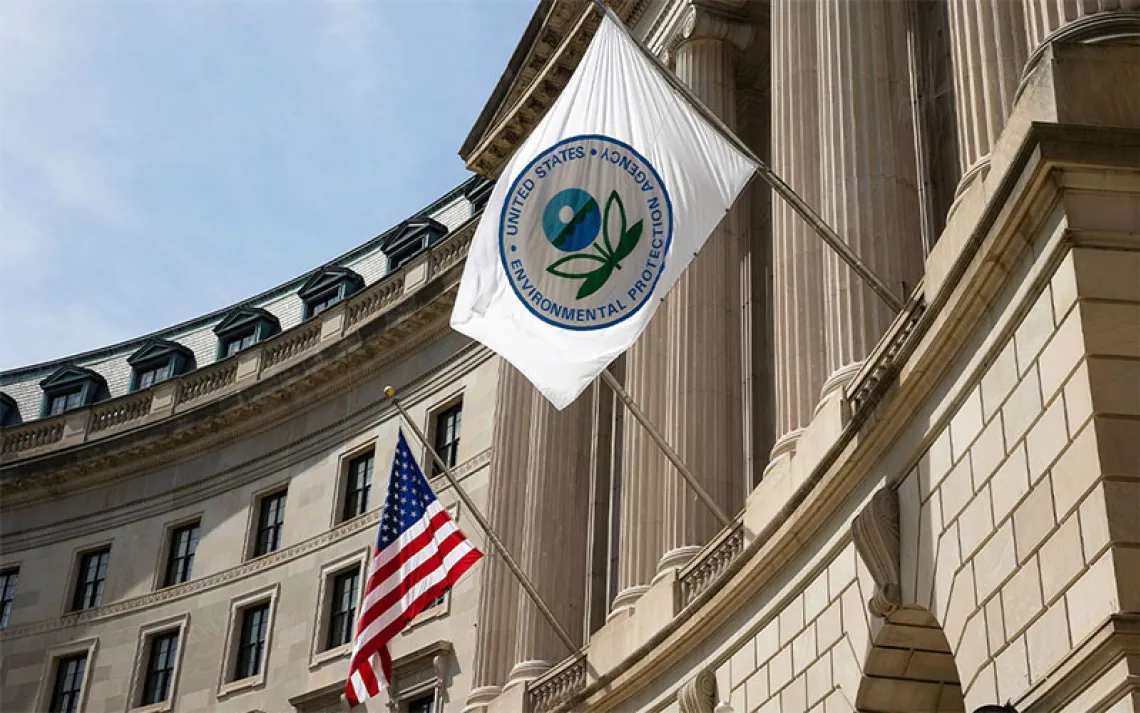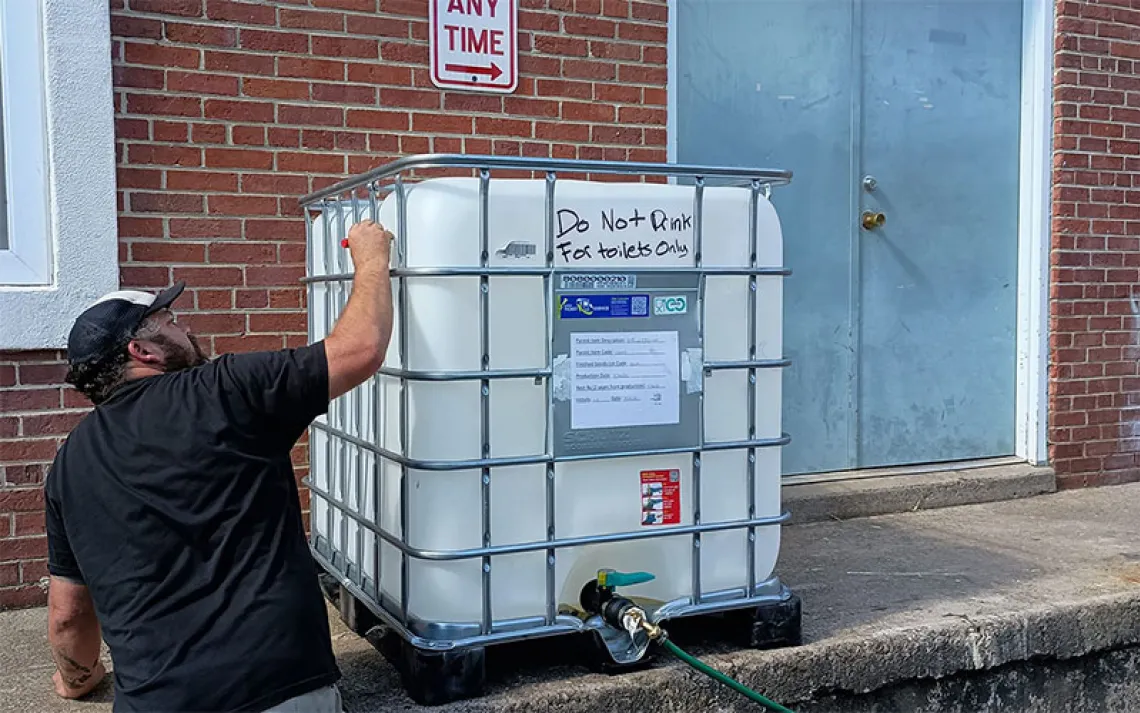Climate Activists Say Women Are Key to Solving the Climate Crisis
When will everyone else get the memo?

Photo by Sam Murphy
Last week’s Global Climate Action Summit in San Francisco resounded with calls for the world to avert global catastrophe by transitioning away from fossil fuels and into a clean energy economy. During the three-day conference, heads of state, policymakers, scientists, and leaders from sectors across society weighed in on how to achieve this momentous goal, with everyone agreeing that the enormity of the task demands a broad diversity of strategies.
But at summit meetings, and a number of affiliate events, some participants expressed frustration over the fact that one key strategy isn’t getting its due. “We have decades of research showing that investing in women’s human rights, including access to education and sexual and reproductive rights, is a significant part of how we can combat climate change,” said Bridget Burns of the Women’s Environment and Development Organization at a forum on Friday morning. "We need to stop seeing this as an add-on to effective climate action and actually as central to it.”
Women are disportionately affected by climate change, partly because its impacts are felt more by the poor, and the majority of people living in poverty are female. For example, 60 percent of those subsisting on less than a dollar a day in sub-Saharan Africa are women.
Women are also more likely than men to be managing food production for their family—in poorer parts of the world, they produce 60 to 80 percent of food crops. Giving women farmers the same resources that male farmers receive (for example, the ability to take out small business loans) would improve yields and could reduce the number of hungry people globally by 150 million. Higher yields not only buffer people against the effects of climate change, they also help combat it by easing pressure on natural resources and decreasing deforestation.
Access to reproductive-health services is both a fundamental human right and another key to reducing pressure on natural resources. Two hundred and twenty-five million women in low-income countries say they want to be able to choose whether and when to become pregnant but don’t have access to contraception. The result is approximately 74 million unplanned pregnancies each year. Education also reduces birth rates and improves the lives of women and their families in countless ways—for example, female farmers who are more educated have more productive agricultural plots.

Sign up to receive Sierra News & Views
Get articles like this one sent directly to your inbox weekly.
With this action you affirm you want to receive Sierra Club communications and may vote on policy designated by the Sierra Club Board.
Given all of this, some climate activists found the summit’s emphasis on high-tech solutions exasperating. “There’s often a focus on techno fixes,” said Burns, “when for years, we’ve been saying that investing in women’s human rights is how we can address climate change. There is still this huge disconnect between the rhetoric and the solutions that are coming from feminists and frontline voices.”
Constance Okollet is one of those frontline voices. She traveled to the summit from her rural community in southeastern Uganda, where villages are already reeling from the impacts of climate change. Farmers grapple with unpredictable weather patterns, storms and droughts destroy crops, and food insecurity is a constant threat. In the face of this, Okollet and other women in her community formed the Osukuru United Women Network in 2007 (Sierra published a profile of the group last November). Together, they work to diversify their crops, start small sustainable businesses, educate the community about climate change, and promote renewable energy. But lack of funds stymies their efforts. “We need money,” Okollet told Sierra at the summit. She had little patience for its lofty rhetoric, asking in meetings, “What can you give me to carry home?”
Ruth Spencer, who is from Antigua and Barbuda, also attended the summit hoping to garner more support for her country’s efforts to deal with climate chaos. “The impact of climate change, we see it every day,” she said. The island of Barbuda was decimated by Hurricane Irma more than a year ago and is still struggling to recover. “The last hurricane, it brought so much sand that right now people cannot grow any plants to feed their animals. There’s no local food production. The schools have not been repaired.”
Spencer is the national coordinator of the Global Environment Facility Small Grants Programme, which is implemented by the United Nations Development Programme. In this role, she strives to deliver funds for local projects. “My groups I’m working with, they have big dreams, and they see they have to do something,” she said. “That’s what I’m here to share. Empower the people and things will happen.”
Okollet and Spencer demonstrate what climate activists on the ground have been saying for a long time: Women in frontline communities are not just victims of climate change, but possibly our best hope for enabling vast swaths of the global population to mitigate its effects.
For some, the summit encapsulated an even deeper dissonance between what they see as traditional patriarchal power structures that embrace a business-as-usual response to the climate crisis and the need for a radical overhaul of the systems that caused it in the first place. Grassroots organizations like the It Takes Roots Alliance and Indigenous groups made their voices heard at the Rise for Climate March on the Saturday before the summit, and in the street outside the conference center on Thursday morning.
At an assembly hosted by Women’s Earth and Climate Action Network International on Tuesday afternoon, Indigenous women and women of color took to the stage to detail the ways that the oil and gas industry has exploited their communities. Kandi Mosset White of the Indigenous Environmental Network described growing up on the Fort Berthold Reservation in North Dakota, which was surrounded by nine coal plants and uranium mining, and thinking it was normal for everyone to have cancer (she herself was diagnosed with cancer at age 20).
Jacqueline Patterson, the director of the NAACP Environmental and Climate Justice Program, shared a similar story. Her childhood neighborhood, on the south side of Chicago, was wedged between three power plants and also had high rates of cancer. At a young age, she lost her father to the disease. Patterson, Mosset White, and other activists see climate change as the end result of a long continuum of exploitation that began hundreds of years ago, and they reject business-oriented solutions like cap and trade which they believe perpetuate that exploitation.

Jacqueline Patterson of the NAACP | Photo courtesy of WECAN
“Everyone wants to work hard together to resolve the climate crisis. The disconnect is how to get there,” WECAN’s executive director, Osprey Orielle Lake told Sierra at Tuesday’s event. The corporate sector is not paying attention to frontline communities, she said, or to community-led solutions. “It’s not just about continuing the system that got us into the climate crisis in the first place.”
Throughout the week, a small group of female heads of state, such as Hilda Heine, who is the first female president of the Marshall Islands, and Mary Robinson, the former president of Ireland, strove to bring messages like these to the fore of the summit. Robinson now runs the Mary Robinson Foundation, which is dedicated to achieving justice for people vulnerable to the impacts of climate change.
When asked about the tension at the summit between climate activists and the business and political leadership, Robinson answered, “Many people feel the current financial system is quite broken—the gross inequality, the influence of money on politics. To me the urgent issue is to reduce emissions while having every voice heard. I’m in favor of a fairer, more equitable system, but we are running out of time.”
Is it even possible, then, to avoid climate catastrophe, let alone create a more just and inclusive society while we are at it?
“I’m a prisoner of hope,” Robinson said, borrowing a phrase she heard Archbishop Desmond Tutu say at a social innovation conference some years ago. “I think the prisoner of hope concept is one we all need right now.”
 The Magazine of The Sierra Club
The Magazine of The Sierra Club



